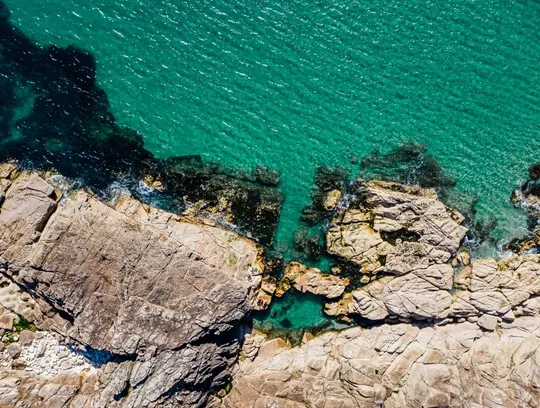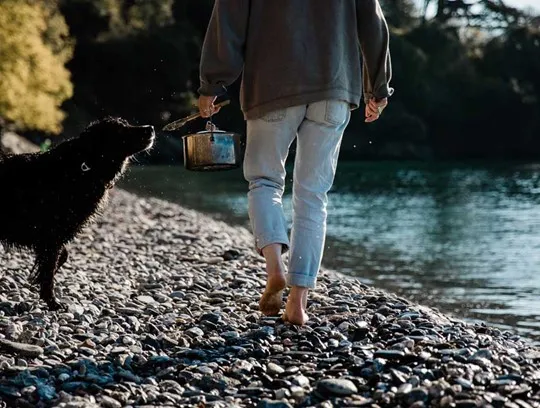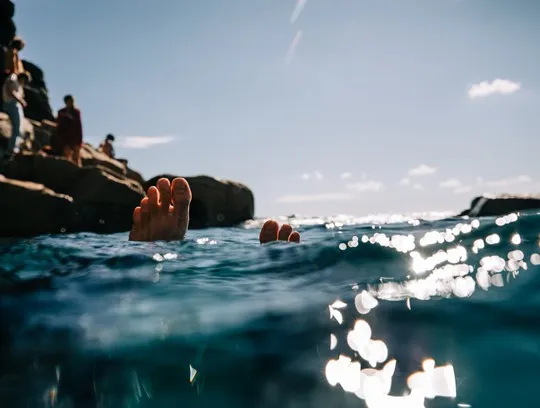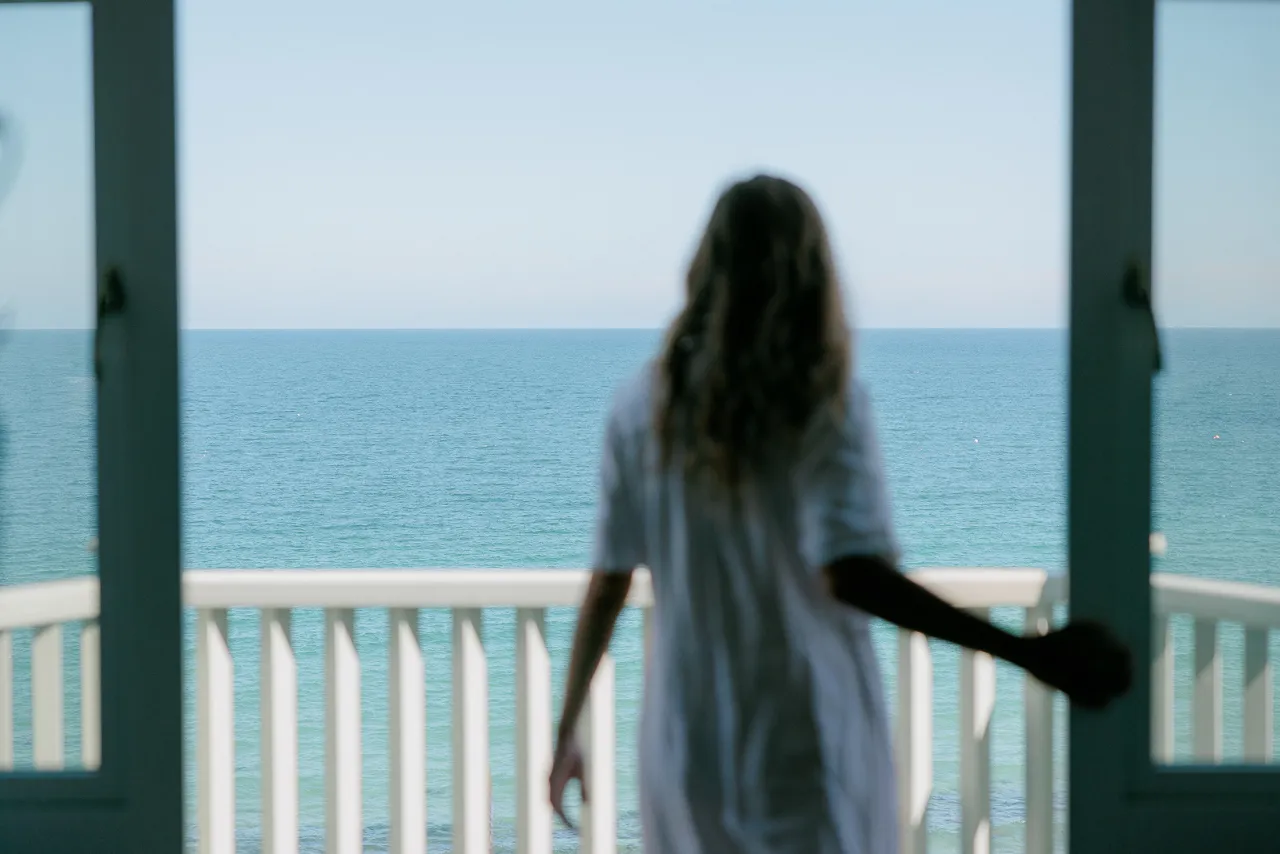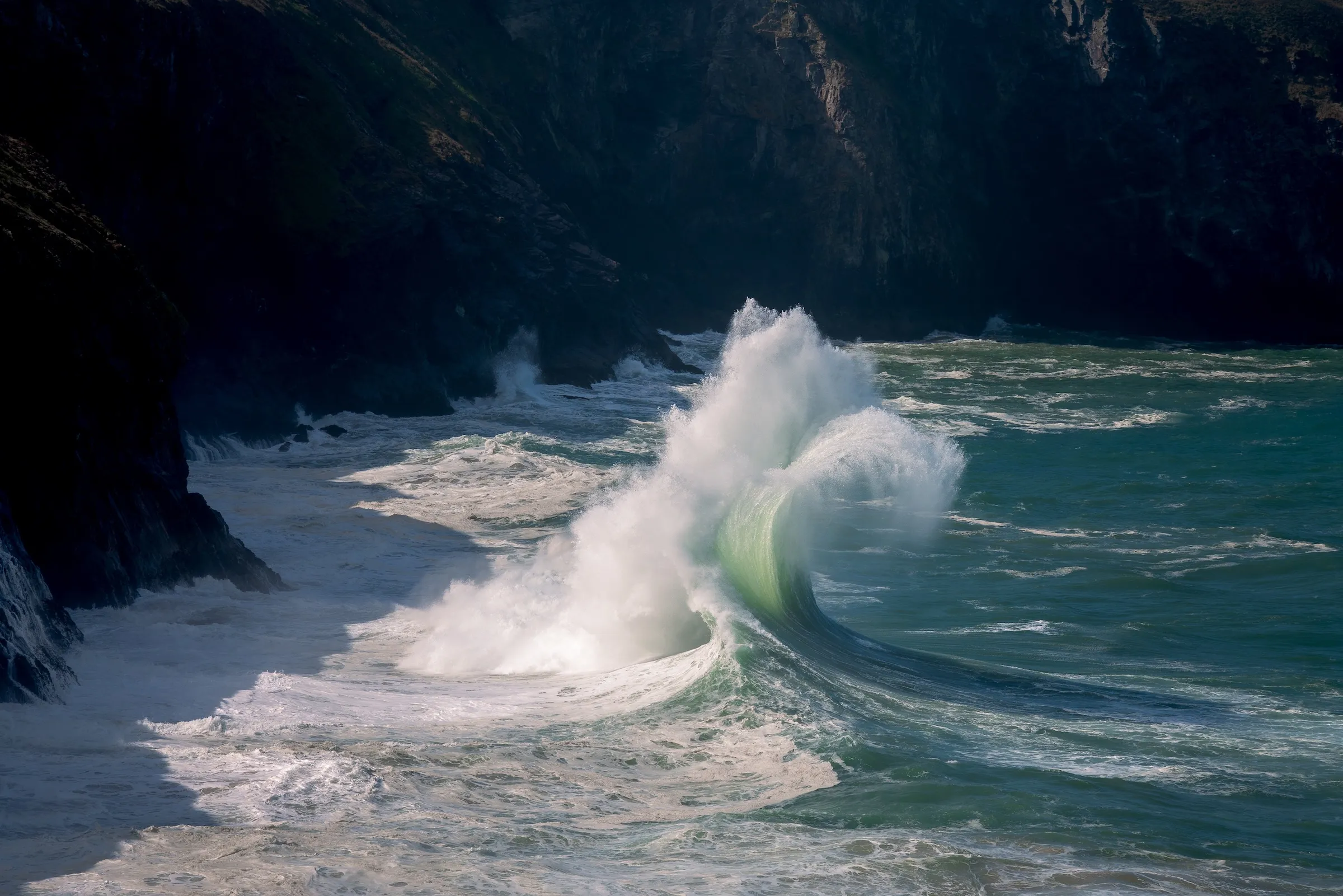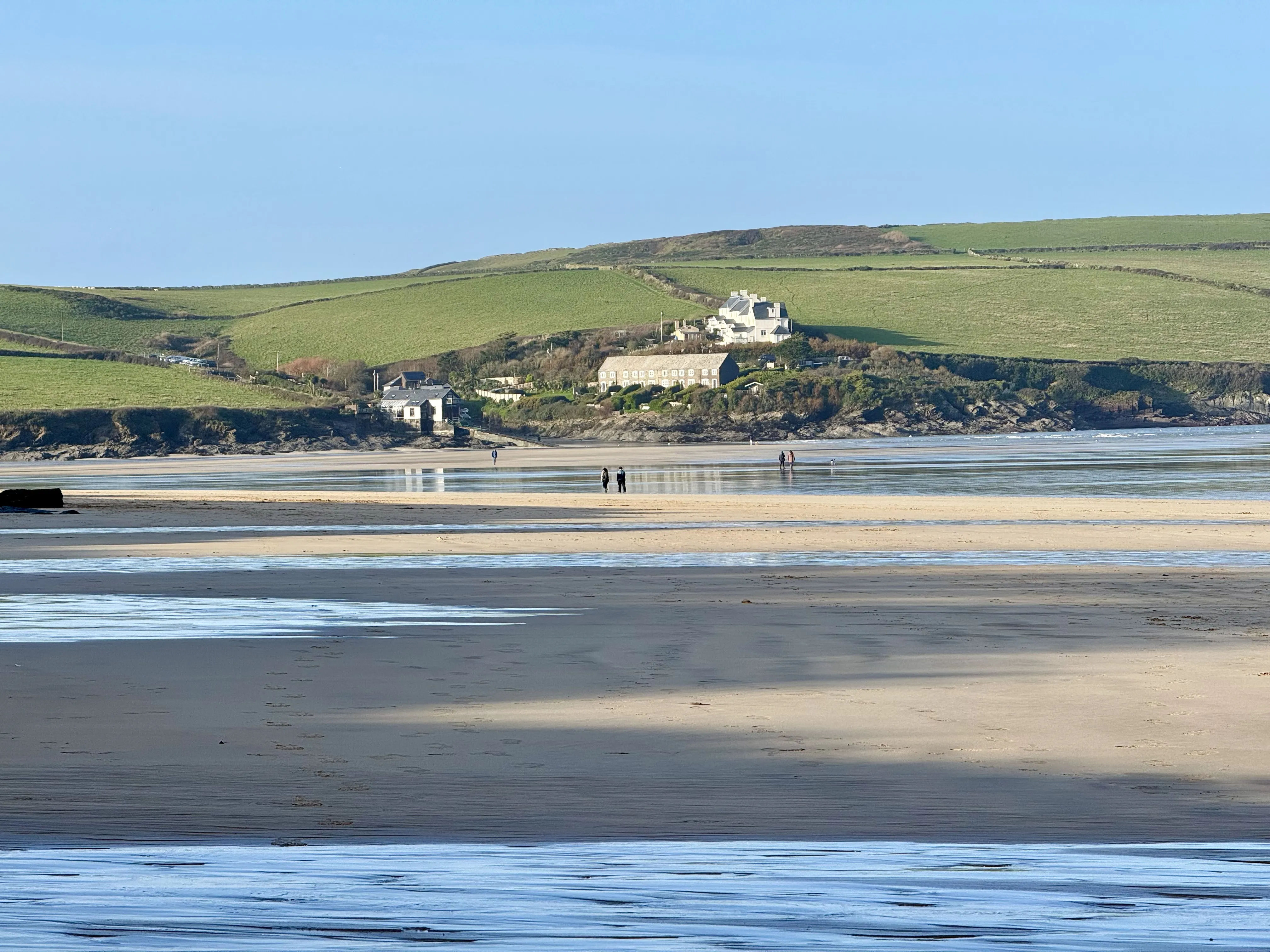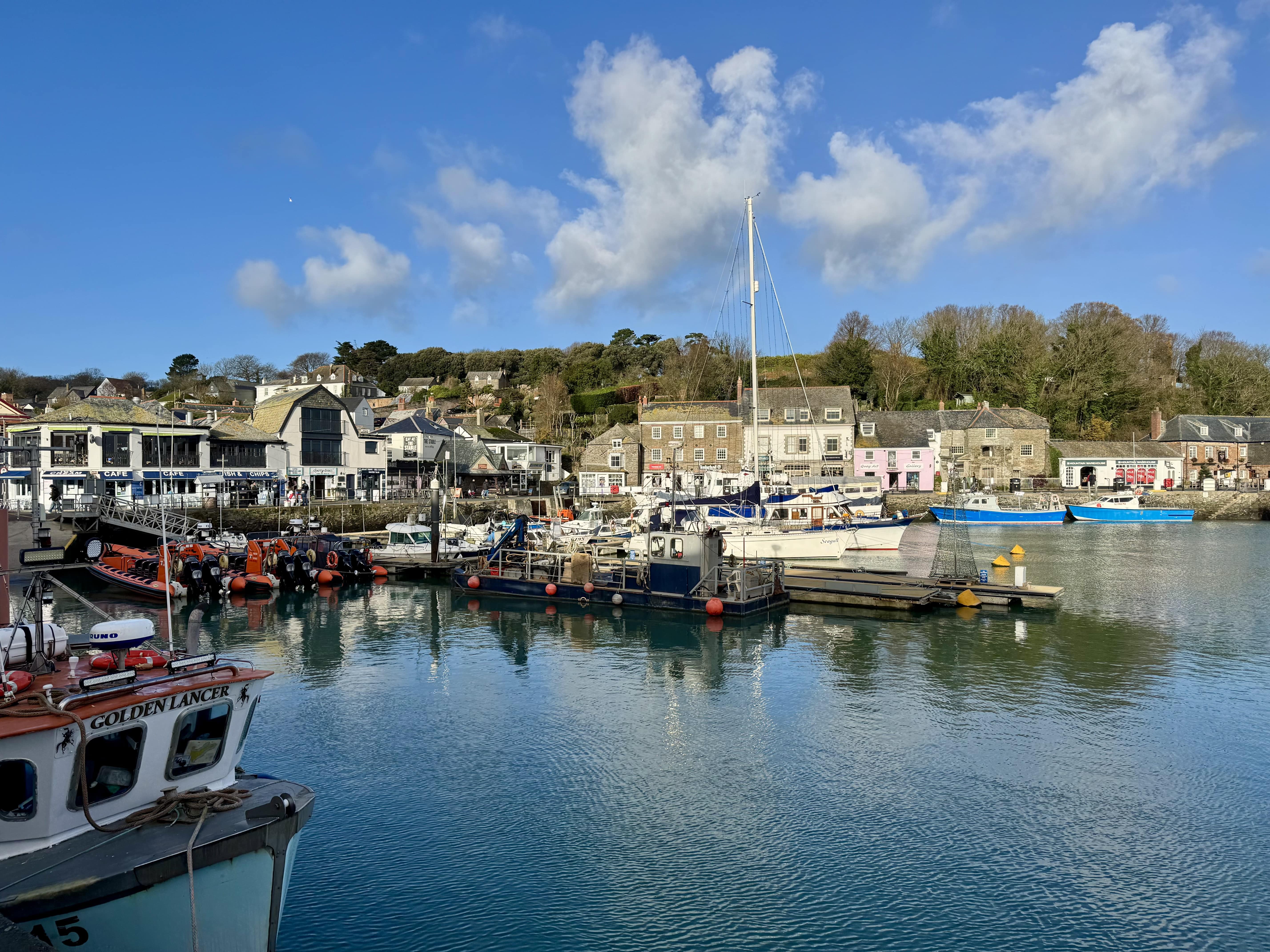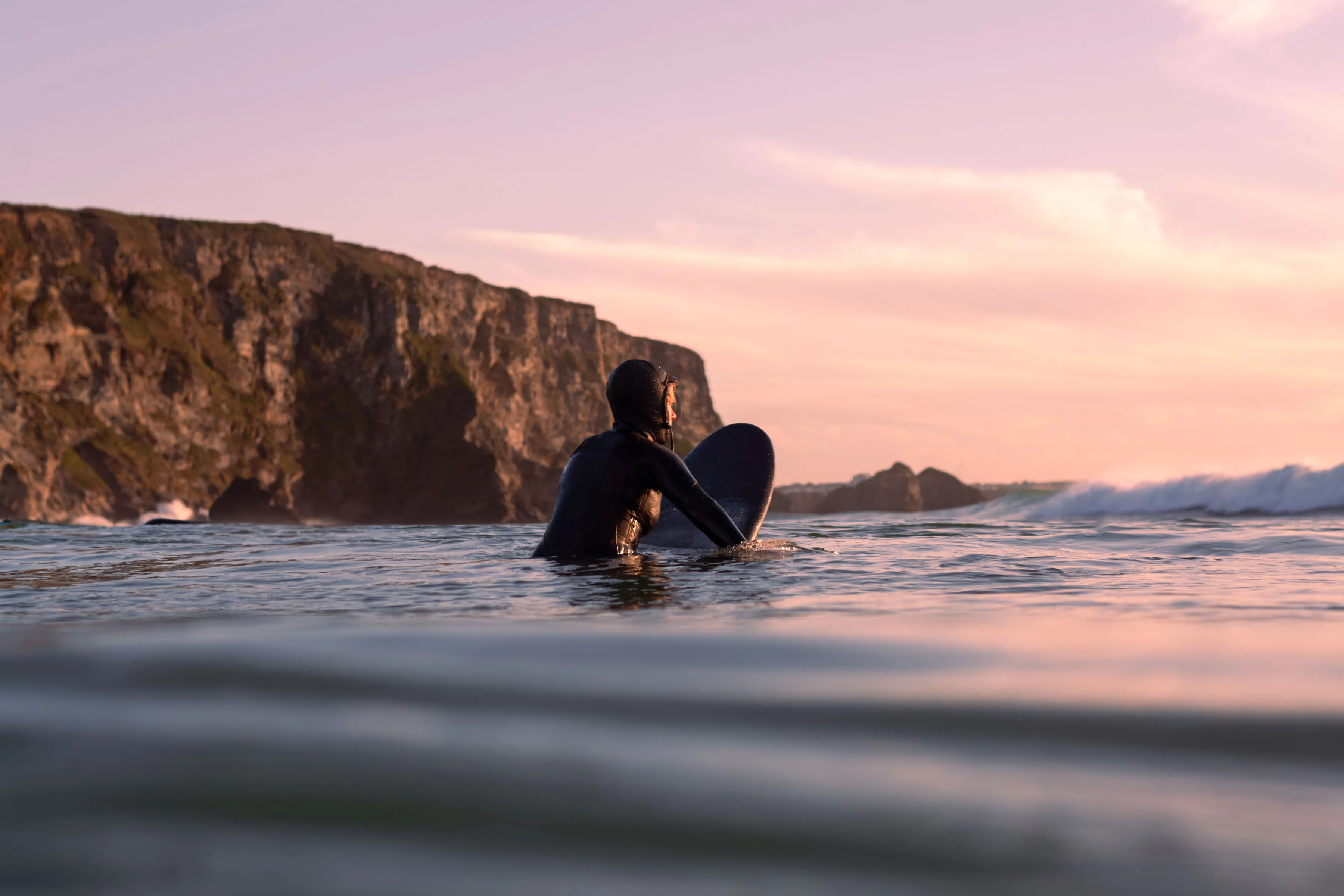Home / Space to breathe
Space to breathe
7th October 2021
“In every walk with nature one receives far more than he seeks.” John Muir
As the temperature drops and the seasons shift, it can be tempting to spend your break indoors. But if you really want to feel your shoulders drop and your breathing slow, you need to venture into nature. With a surprising diversity of landscapes, including river banks, ancient woodland and rare heathlands, Cornwall offers a unique natural environment to explore.
“There’s something hugely freeing about being in open space,” psychotherapist and founder of the Nature Therapy School, Beth Collier, told The Guardian recently. “The part of the brain that is responsible for ruminative and negative thoughts – the subgenual prefrontal cortex – has been shown to quieten when we connect with nature, which gives people more space to process their problems.”
Visiting with a large group? Discover our large holiday homes perfect for big families or friend groups.
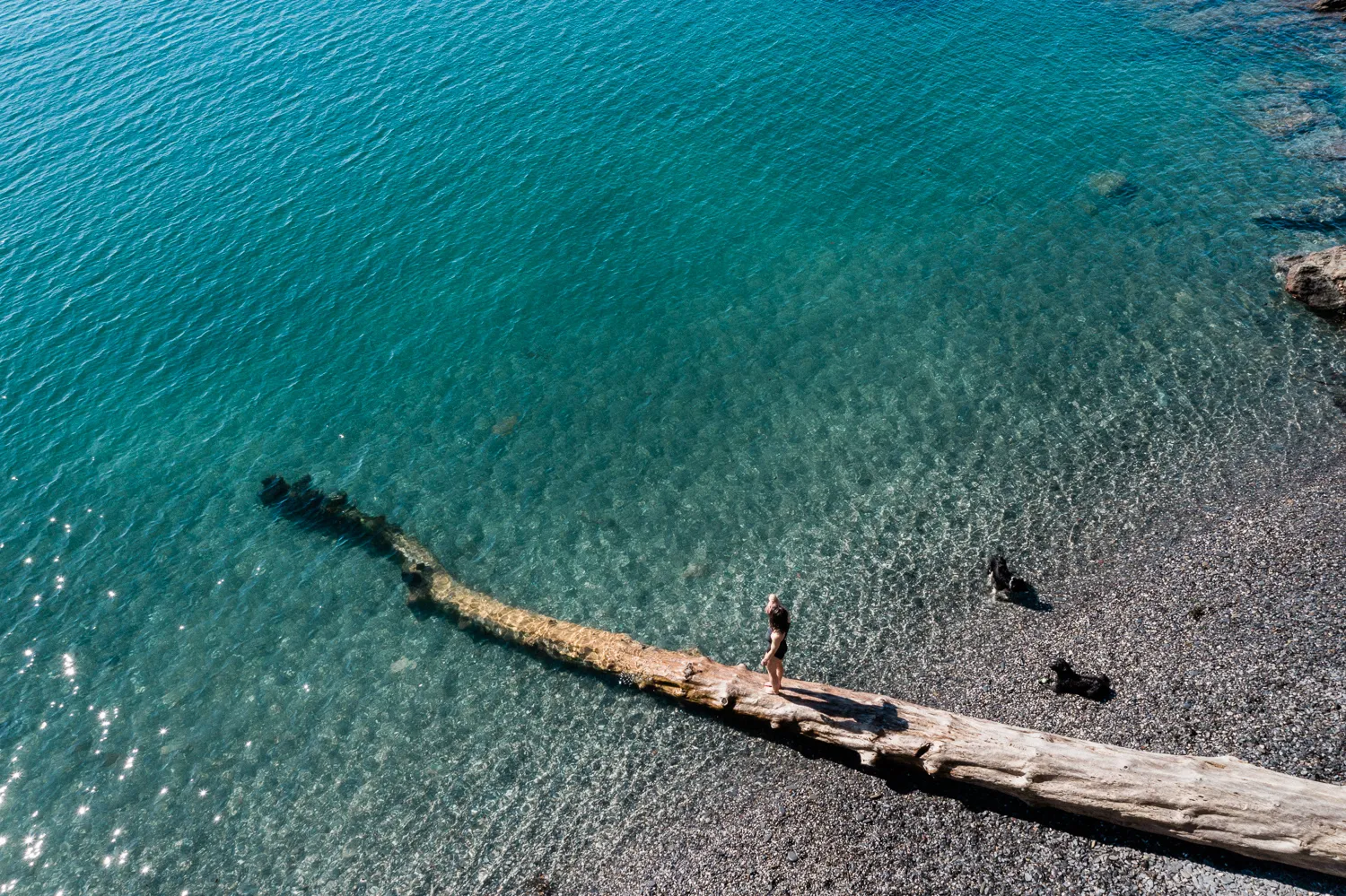
This feeling of mental space, cultivated by time in nature, is something forager Rachel Lambert seeks out regularly. “When my mind is too busy, I step out on a walk and my worries drop away and things naturally prioritise themselves,” she says. “There’s always something to take your attention in nature, but it’s not searching for it. It’s those things you don’t need to cognitively understand: the breeze on your skin, the rain on your face. It awakens but also settles your whole system.”
Natural healing
Running wild food foraging walks across Cornwall, Rachel is well acquainted with being out in the elements. Based in Penzance, she loves the rugged romance of where the moors meet the sea. But Rachel believes nature is more than a beautiful backdrop. “Interaction with nature is really important,” she says. “It’s not a museum to stand back and admire. Foraging for me is about being able to see the landscape through a different lens. It’s a way to help us understand the environment and see that everything is interconnected.”
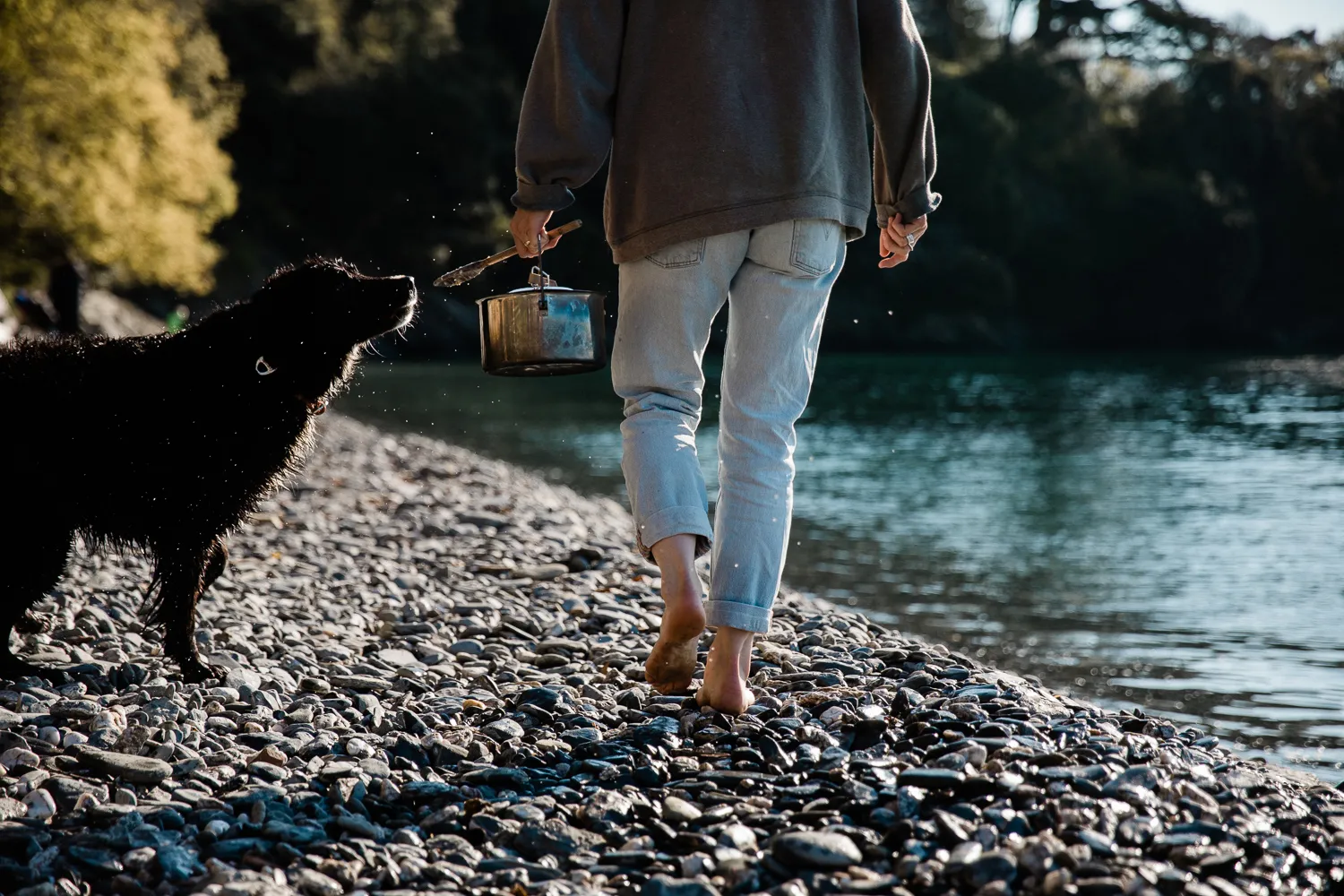
“Foraging for me is about being able to see the landscape through a different lens.”
Autumn is especially rich in pickings, with abundant hedgerows all around. “I’ve done some group walks recently between here and Marazion, and we’ve found sea spinach, burdock, yarrow, rock samphire, black mustard, beach roses, blackberries.”
Fancy staying in Marazion, discover our Marazion holiday properties.
Rachel sees foraging as an antidote to the sadness of the fading of summer. “For lots of people, it’s a melancholic moment, so I think things like autumn berries can act as a marker and help us appreciate the new season.”
As Rachel explains, foraging is a mindful activity that uses all the senses. It’s hard to fret about work when you’re swerving the spikes of a sloe bush, or admiring the vivid orange skin of sea buckthorn berries.
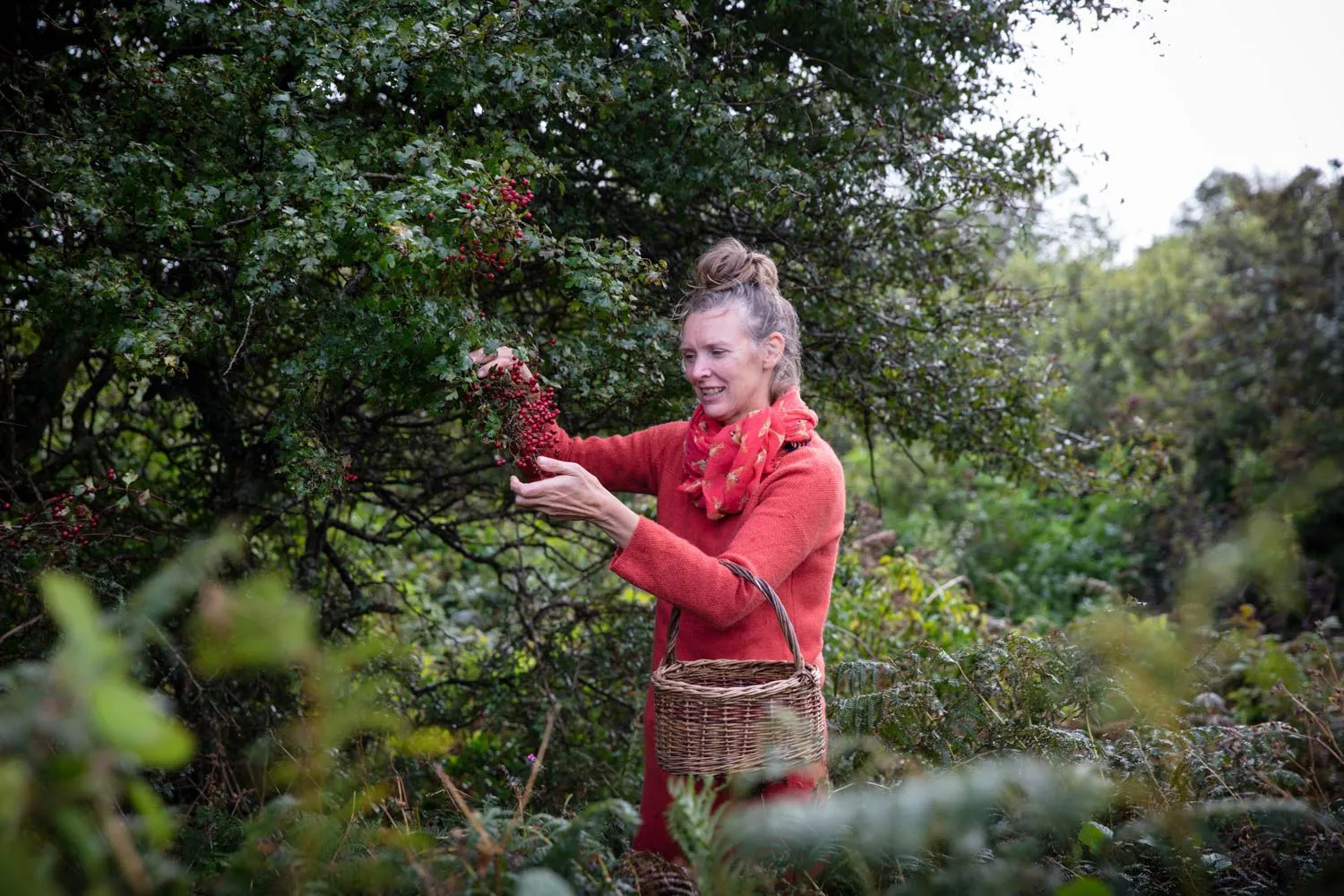
Credit: Elliott White
“Our lifestyle is changing a lot quicker than our bodies,” says Rachel. “We simply haven’t been in modern houses for that long. But I think stimulating the senses outdoors is a great way of feeling alive – and feeling like a three-dimensional human being.”
Into the forest
Founder of Forest Bathing Cornwall, Paul Simmons, agrees that getting into the wild is key to wellbeing. “Stress is an understandable reaction to contemporary life, because historically we’ve spent so much time outdoors,” he says. “It’s in our DNA. It’s called biophilia – this affinity to being in nature.”
“When you go into the forest, you’re in a different time zone. It’s about slowing down, switching off and being present in that moment.”
A practitioner of the Japanese phenomenon of shinrin-yoku, Paul leads woodland walks across Cornwall, helping people to reconnect with the healing rhythms of nature.
“Forest bathing is the literal translation of ‘shinrin-yoku’, and it’s a clinically proven therapy,” says Paul. Defined as absorbing the atmosphere of the forest, forest bathing “is playful and intuitive. It’s about going back to a child-like state and using all the senses; looking at the light, listening for sounds, feeling the movement of the wind, seeing what you notice.”
“I always say it’s the forest that’s the therapist. As the practitioner, I’m the conduit.”
Paul’s assertion that forest bathing “helps with stress, it helps with sleep, it works with the cardiovascular system,” is supported by studies that show how forests can reduce cortisol, lower blood pressure, and increase parasympathetic nerve activity.
“When you go into the forest, you’re in a different time zone,” says Paul. “It’s about slowing down, switching off and being present in that moment. I always say it’s the forest that’s the therapist. As the practitioner, I’m the conduit.”
While he’s forever on the lookout for Cornish woods to work from, Paul has a few favourites. “On the northern side, Tehidy Woods is a good place to go. Then there’s Penrose Estate near Porthleven, and Coosebean Woods in Truro. We have lots of little rivers in Cornwall too, which are great for forest bathing. Being next to running water is so restorative.”
Off the beaten track
For author Sophie Pierce, whose book Wild Swimming Walks Cornwall showcases less-visited but spectacular routes for a stroll and a dip, walking in nature is a therapeutic activity.
“Walking gives you a sense of journey – you feel you’re going somewhere,” she says. “Then there’s the rhythm of the steps. The experiences you have along the way distract you, so that anxious thoughts fall away. And being out of your domestic environment – it’s liberating.”
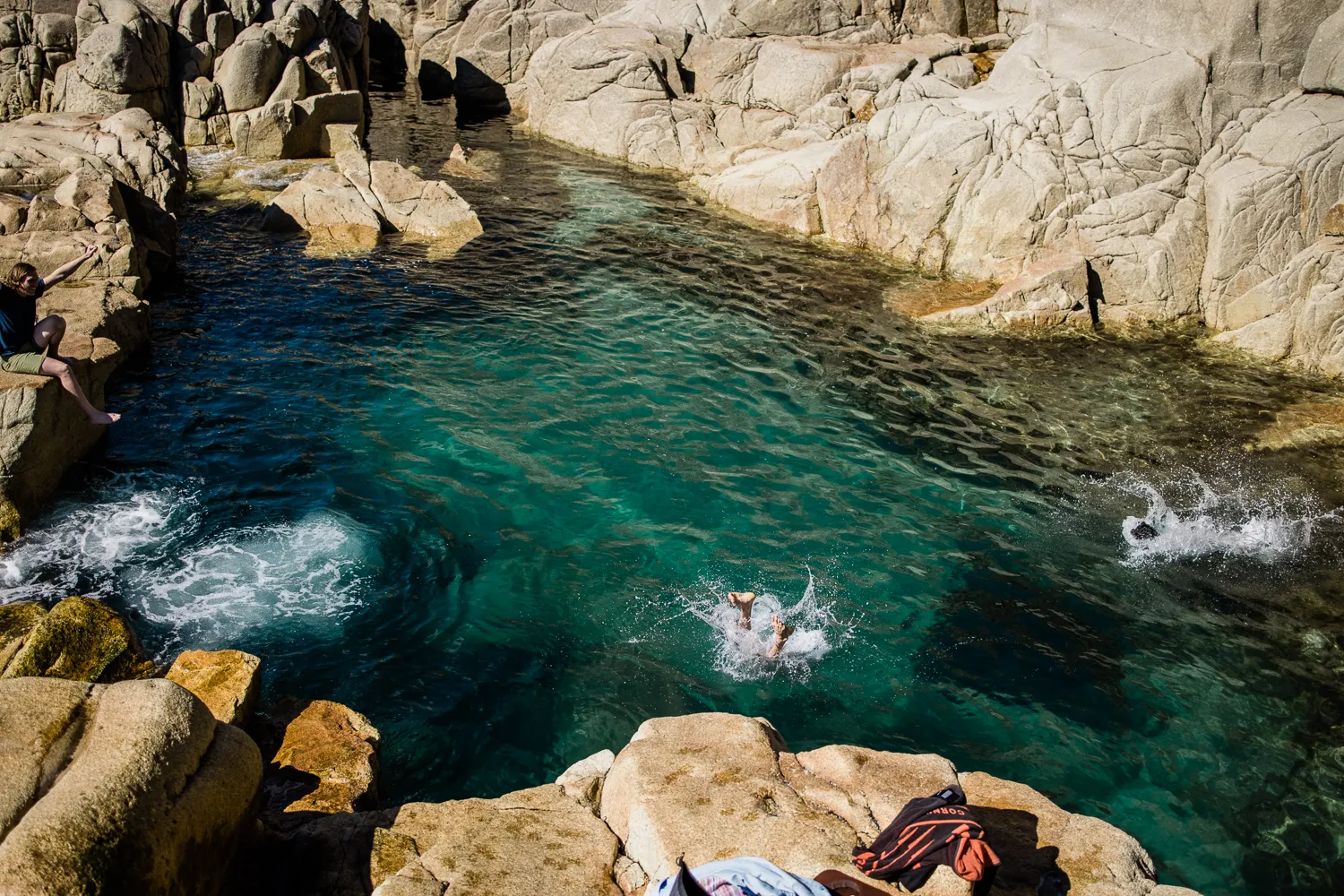
“It’s exhilarating, watching the waves and being battered on the clifftop by the weather.”
For a walk with a unique mix of landscapes, Sophie heads to Frenchman’s Creek. “You start in the village of Helford, and pass a lovely beach called Penarven Cove. Then you walk around a bit further until you get to Frenchman’s Creek, then come up through the woods, passing a beautiful gallery with a garden called Kestle Barton.”
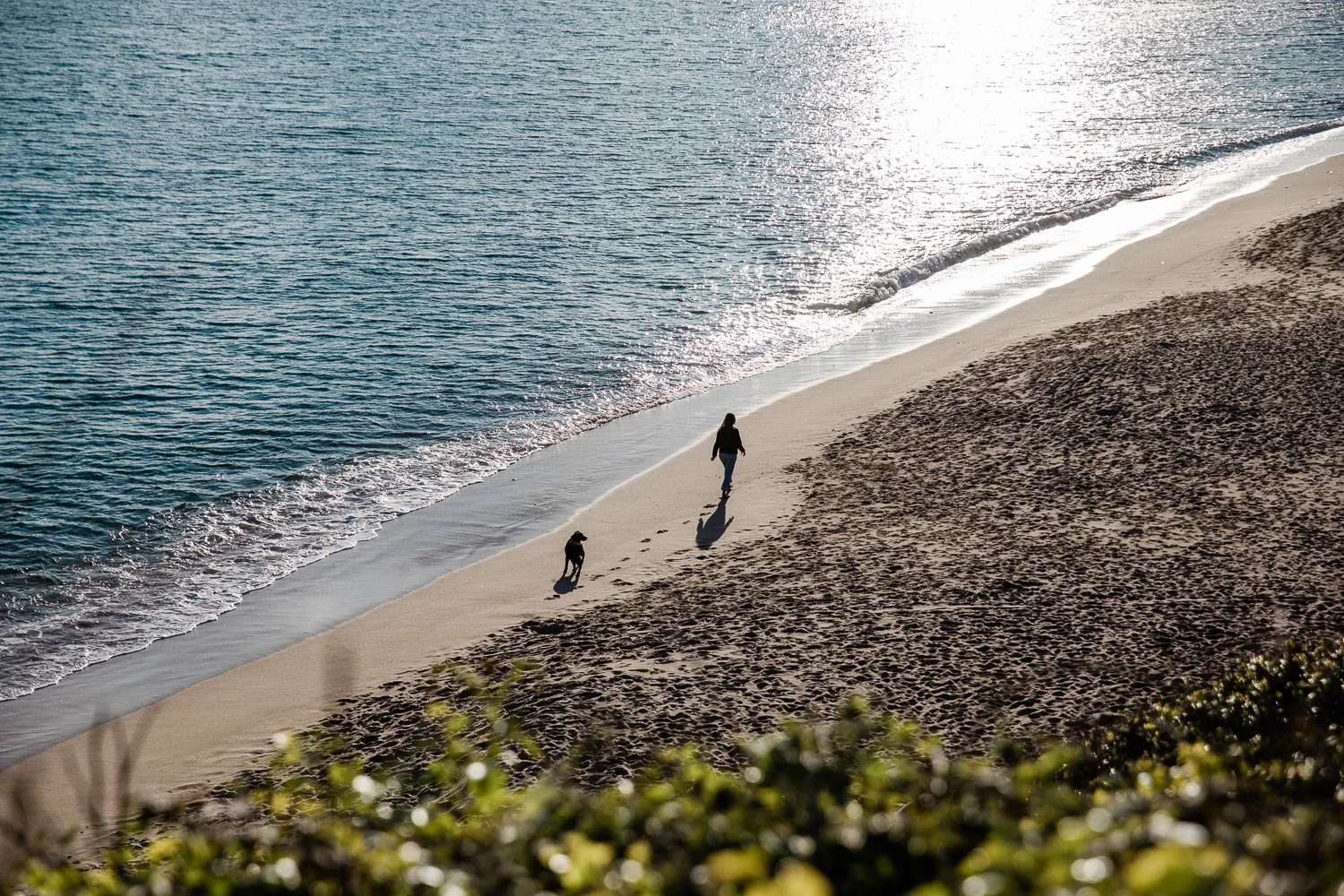
“If you go to the North Coast, where you’ve got amazing surf, that can be mindful in a different way,” says Sophie. “It’s exhilarating, watching the waves and being battered on the clifftop by the weather.
“There’s a circular walk in our book near Tintagel which involves all sorts of environments and feelings. It starts in the village of Bossiney, before heading through the enchanting woods of St Nectan’s Glen, where there’s a little river with an incredible waterfall, which has long been a place of pilgrimage for Pagans. Then the walk goes past an old mine and through Rocky Valley, where the river flows out to sea.”
“Beautiful landscapes stay with you. They nurture the soul.”
In 2017, Sophie’s life changed forever when her 20-year old son Felix died suddenly. Her new memoir, The Green Hill, will chart her navigation of the tides of grief – and the consolation of the natural world.
“When you lose somebody, you’re desperately trying to gain some kind of understanding,” says Sophie. “And there’s something eternal about nature. It feels permanent and so much bigger than us. I believe we are all part of nature, so if I’m somewhere where I feel in harmony with nature, then I feel there’s a connection back to my son.”
For Sophie, Paul and Rachel, natural beauty is an unbeatable tonic. “Beautiful landscapes where you feel a sense of infinity – moorland where you can see for miles, or a cliff above the sea – it’s almost like a connection with time,” muses Sophie. “Those places stay with you. They nurture the soul.”
Experience tranquillity with yoga on a Cornish beach, where the serene coastal backdrop enhances your practice and rejuvenates your spirit.
Find out more about foraging courses with Rachel Lambert
Book a forest bathing session with Paul Simmons
Buy a copy of wild Swimming Walks Cornwall and learn more about Sophie Pierce.
